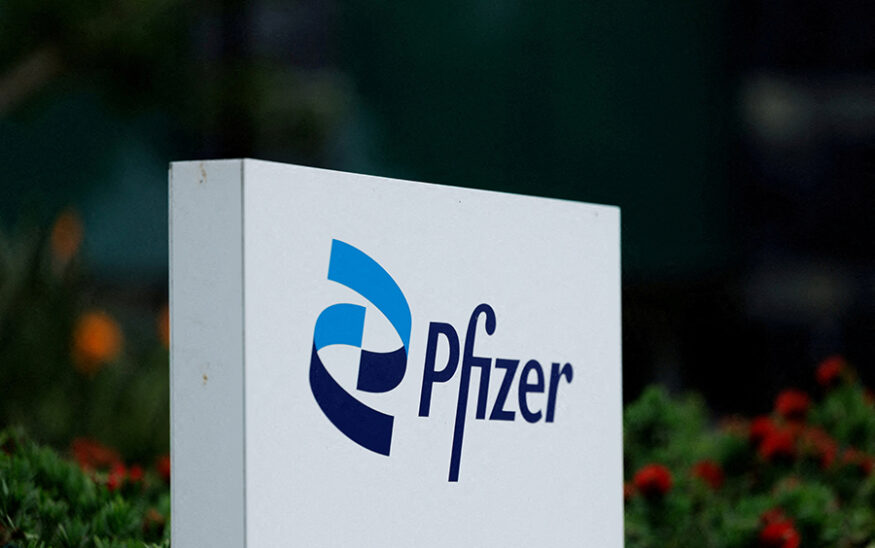
FILE PHOTO: A Pfizer logo is displayed at a research facility in the La Jolla neighborhood of San Diego, California, U.S., September 30, 2025. REUTERS/Mike Blake/File Photo

FILE PHOTO: A Pfizer logo is displayed at a research facility in the La Jolla neighborhood of San Diego, California, U.S., September 30, 2025. REUTERS/Mike Blake/File Photo
Metsera falls after accepting up to $10 billion offer from Pfizer
(Reuters) -Shares of Metsera fell over 15% in early trading on Monday, after the weight-loss drug developer accepted a sweetened offer from Pfizer to end a fierce bidding war between the pharma giant and Danish rival Novo Nordisk.
U.S. drugmaker Pfizer said late on Friday it had clinched an up to $10 billion deal for Metsera, in a blow to Novo as the Danish group tries to claw back lost ground against U.S. rival Eli Lilly.
Metsera accepted Pfizer’s offer, citing U.S. antitrust risks with Novo’s bid that it had previously called superior. The Danish obesity drug behemoth said on Saturday it would exit the race.
“Pfizer effectively had the upper hand throughout — because as long as they matched whatever Novo offered, they were guaranteed the asset,” said BMO Capital Markets analyst Evan Seigerman.
Under the terms of the final deal, Pfizer has agreed to pay $65.60 per share upfront, and up to $20.65 per share additionally contingent on the success of its pipeline of drugs, valuing Metsera at up to $10 billion.
Metsera shares were down 15.2% at $70.58 and Pfizer fell 1.4% to $24.09.
Seigerman said Metsera shares fell on Monday because Pfizer’s revised offer “is not all cash upfront”, and the actual value may be lower once the risk of missing milestone payments tied to the CVR is taken into account.
As of last close, Metsera shares have surged nearly 150% since Pfizer first said it would acquire the biotech firm in a deal valued at up to $7.3 billion.
The win hands Pfizer a way into the lucrative obesity drug market, even if Metsera’s treatments remain years from hitting the market.
Metsera’s experimental obesity drugs, currently in early-to-mid-stage development, include MET-097i, a GLP-1 therapy designed for a once-monthly injection, compared with similar treatments from Lilly and Novo, which require weekly injections. It is also developing MET-233i, which mimics the pancreatic hormone amylin.
Drugmakers are facing pressure from the U.S. government to slash prices of prescription drugs in the country, which often pays nearly three times more than in other developed nations.
Last week, President Donald Trump had cut a deal with Novo and Lilly to slash the prices of its blockbuster weight-loss drugs for the government’s health insurance programs, as well as for cash payers.
Pfizer CEO Albert Bourla said in a CNBC interview the prices it had used in its analysis of the Metsera deal were similar to the ones Novo and Lilly had announced at the White House meeting.
(Reporting by Stine Jacobsen and Mariam Sunny; Additional reporting by Maggie Fick in London; editing by Terje Solsvik and Krishna Chandra Eluri)



















